- From Faith Current: “The Sacred Ordinary: St. Peter’s Church Hall” - May 1, 2023
- A brief (?) hiatus - April 22, 2023
- Something Happened - March 6, 2023
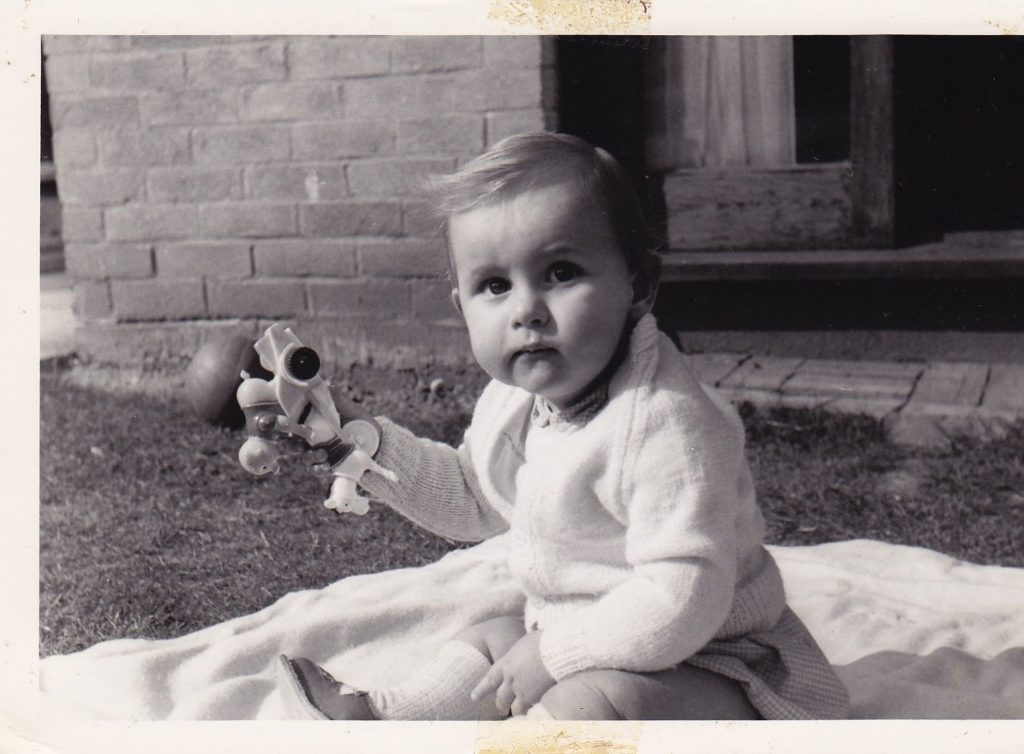
Commenter @Justin wrote this morning about John Lennon’s lousy reputation among younger Beatle fans, and the concomitant rise in esteem that Paul McCartney has enjoyed. This has joggled some thoughts about my own fandom that perhaps are worth sharing. I haven’t given this post the obsessive working over that I sometimes mete out to my posts on Dullblog, and that’s on purpose; I’m writing “off the top of my brain,” trusting that this will add something that too much analysis might take away.
When I was growing up, John was my favorite Beatle, and it wasn’t close. I liked the others, but I loved John Lennon. Hands down, he was the person I wanted to hang out with most. He invented The Beatles—the others were essential, each in their way, but he was the person whom that original lightning struck. Lennon was the leader of the best gang ever; he was so damn smart and funny; he’d come from a difficult family situation to become rich and famous and beloved. I wanted—no, needed—to learn everything I could from him, because I was playing the same game, and facing the same long odds, for a lot of the same reasons.
So I snarfled up everything I could by and about John Lennon from age eight to eighteen, and came to feel that this person I’d never met was a friend of mine. Not a peer, exactly, but more like an older brother or an Uncle. I’m sure many of you can relate. This powerful-but-false intimacy was Lennon’s peculiar, ultimately tragic gift, and I cannot think of another public figure who generated it in as much abundance. John F. Kennedy, maybe?
And that, to me, is the difference between Lennon and McCartney; Paul is always an entertainer, while John is always himself. You can like and even love Paul, without any sense that you know him, that you are intimate—or that you can judge Paul, or that he owes you anything. The most passionate McCartney-related positions on this site tend to portray Paul in a passive role; fans are angry over what John or Yoko or Klein or Japanese Customs did to Paul. Moments of Evil Paul—like the “you and your Jap tart” note—don’t capture our imagination, because they don’t seem quite real. Would Paul really do that? Nah. But would John really heave a shitload of bricks through Paul’s bay window? Totally.
Paul is not a puzzle. His statements are not analyzed like the Talmud; we watch him make mashed potatoes and sing in the car and love him like a neighbor. Who Paul McCartney is, and even his agency in specific situations, is always the same: just a bit blurry, a bit distant, a bit changeable—and that’s what has allowed him to remain famous and beloved for 55 years and counting. Paul’s peculiar, saving gift is the reverse of his bandmate’s: he can engender great affection without the illusion of intimacy.
The Paul Is Dead myth rests on the idea that Paul—a collection of truly irreplaceable talents—could be replaced without most fans even noticing; as long as Faul (to use the lingo) looked like Paul, most Beatles fans wouldn’t even notice. Can you even imagine a John Is Dead theory? It falls apart immediately. Who has ever been like John Lennon? Who could ever be like him? Anyway, we would be able to tell right away. Because we knew him.
But, of course, we didn’t.
I was born in June 1969, which places me both in the Gen X cohort, and in the weird group of Beatle fans who didn’t remember the phenomenon first-hand, but were alive and aware during the time that a Beatles reunion seemed possible, even likely. The Beatles were already a legend, but John, Paul, George and Ringo were bright stars in the talk show/show biz firmament—not as dazzling as they’d once been, but nobody held that against them; nothing about the Seventies really stoodd up to the decade before. As P.J. O’Rourke wrote, “The Sixties were about changing the world. The Seventies were about giving up smoking.”
You could say the same about John Lennon. His connection to his times was positively umbilical; to his Baby Boomer fans, he was living their life, only a few years ahead. He’d gone through sex and drugs and rock and roll, and found at the other end, family and children. Just as Lennon had once worried about Nixon and creeping fascism in Amerikkka, he now worried about inflation and his kid eating too much junk food. Just as Lennon spent the former decade trying to save the world, he spent the latter pushing away the cancer sticks. He succeeded in neither, but we loved him for both.
And we did love him—especially after his murder. He was so young, remember, and seemed to be moving in good directions—for himself, and for the rest of us, too. If it has turned out that the idyllic portrait of househusbandry was not quite true, or if John and Yoko weren’t quite as devoted to each other as the press releases suggest, that doesn’t temper the power of the story. John Lennon tried, all right? He tried to write good songs, tried to use his stardom to spread wisdom, tried to be a good dad, tried to be a man of the people…
That was a lot of why we loved him so hard in the Eighties: guilt. He’d made himself available to fans—that’s what we wanted, right? To have him walk among us, as one of us—and we’d killed him for it. Because Mark David Chapman was crazy, because there was no logic behind the murder, it was possible to feel that we’d all been responsible in some way. Each fan remembered all the times they’d spun some fantasy of being friends with John and the others, and realized that perhaps Chapman’s bonkers hatred was the same mechanism, only flipped.
That wasn’t quite fair, but we were all searching for an answer, a reason why. If he’d been living our life, just a few years ahead, what could that horrible ending possibly portend? Lennon’s death was shocking, a final coda to the assassinations of the Sixties. People felt like they’d lost a member of the family; I remember hearing my favorite aunt crying through the phone. And when Lennon’s name comes up, people will still tell you where they were when they heard. “I was walking down Central Park West,” a marital arts teacher of mine told me. “I passed the Dakota about ten I think. Then, when I was a few blocks away, I saw these police cars tearing up the street. That must’ve been them responding to the call.” He didn’t say, “If I had been there, I would’ve prevented it.” He didn’t have to; I knew that’s what we both were thinking.
If John Lennon had a Christ complex, we gave it to him. So it was the most obvious thing in the world, after he’d died that way, to inflate him into more than he had been—more than anybody could ever be. As of December 9th, 1980, and for at least twenty years after that, John Lennon suddenly wasn’t just a fascinating fellow, a Sixties musician who might still gift us with a few more great songs, and the occasional moment of triumphant monoculture (you think Queen was big at Live Aid? Imagine a reformed Beatles). No, he was now a genius, perhaps the genius of our era. Goldman was reviled; that wasn’t the Lennon we knew! By 2002, this ace songwriter and rhythm guitarist with the interesting marriage was the eighth most admired Briton in history, edging out do-nothings like Oliver Cromwell and Lord Nelson.
But hagiography is, in the end, not really very interesting. And as his widow and her pals at Rolling Stone burnished his legend constantly, there was a subtle shift happening. By the early 90s, the hagiography was so thick I started getting more interested in Paul and George. Lennon had changed from the Beatle I thought I knew, to the one most obscured by publicity.
If the first twenty years after his death was about building him up, the second has been tearing him down. Slowly, the darker stuff began to emerge, drip-fed by Yoko herself: that John was a hitter, that he was bi-curious; that he fell into rages. In our internet age, where hypocrisy is a greater flaw than actual bad deeds, Lennon has come in for a tough time. Sure, he was a feminist—but he beat his wife! Sure, he advocated peace—but he was a shitty father! George (unfaithful, coke-addicted George) was really the spiritual one; Paul (the king of Seventies AOR) was really the genius musician. And Yoko didn’t help, licensing his music to Nike and Apple, and his image to Citroën. People’s boredom with St. Lennon naturally turned to defiling his cult—a cult that no sensible fan should’ve joined in the first place.
So where am I at now, with my good old Uncle John, this man I feel I know even though we never met? Well, first of all, I realize that I don’t know him, and never will. Second, that he was an uncommonly complicated fellow who lived an uncommonly weird life almost no one could possibly relate to. Third, that the image-management that comes from the Estate—whether it’s Yoko’s complicated relationship with the Philip Norman bio, or the disastrous musical, or this upcoming Peter Jackson actually-the-sessions-were-quite-awesome reboot of “Let It Be”—probably does more to obscure the man than illuminate him, and probably turns off most younger fans by making him one-dimensional; more of a walking hypocrite than of a person-in-transition.
In the end, I’m left with fascination and empathy. Admiration and humility. And appreciation. Neither a genius nor a charlatan, sinner nor saint. When I think of Lennon, I remember Suzuki Roshi’s definition of Zen: “Lots of space; nothing holy.” It’s not a bad place to be.
Where are you?

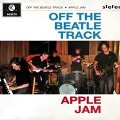
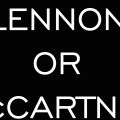
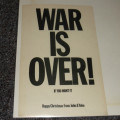


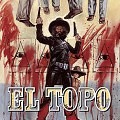
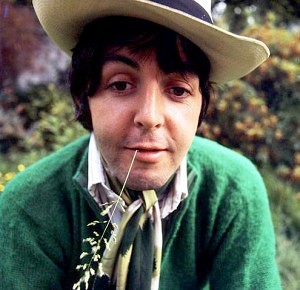
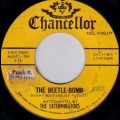
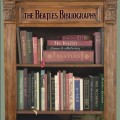
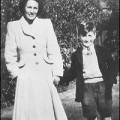
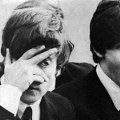
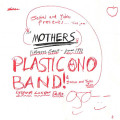
“Paul is not a puzzle.”
I strongly disagree with this, but think you’ve inadvertently articulated the root cause of the problem in much of Beatle authorship. To fans who love Paul, he is deeply mysterious, complicated and endlessly fascinating. To the culture of men who worship John Lennon (i.e. all the dudes who write books about the Beatles), the world revolves around John and his genius, and everyone else -including Paul- is merely along for the ride. It’s reductive and absurd and so, so, so tiresome.
Ultimately this comes down to a matter of preference, no more or less. But the fact that you’re not personally as interested in Paul doesn’t make him less interesting.
Point taken, but I didn’t say that Paul isn’t interesting. I think he is. I merely said that to me, Paul doesn’t seem like a puzzle.
.
Paul is pretty much the same dude today as he was in 1964, and his life has gone pretty much the way one might have hoped. His behaviors and decisions are consistent; when he picked a wife, it was a stable, well-integrated person, with whom he had a long, mutually supportive relationship. His kids have all turned out to be sell-adjusted, which suggests that he has been a good parent, as it seemed from the outside.
.
None of this is to say that his work isn’t as deep or thought provoking or worth as much study as Lennon’s—I think it is, and think he will be considered s musician equal to Lennon.
.
But, to me, Paul is not s puzzle. To the degree that he is damaged—and I think there is some damage there—it’s pretty standard codependency. Once again, predictable. Not erratic. Not prone to going off in wild unexpected directions. His addiction to pot — unlike George’s, Ringo’s and John’s addictions — was very high-functioning. There is not s lot of mess to untangle.
.
I think Paul has led an incredibly successful, useful, meaningful life. The kind of life that is less fascinating or complicated that Lennon’s, Hsrrison’s or even Starr’s.
.
I aspire to a life like Paul’s—doing exactly what he’s wanted to do, doing it well, and avoiding the obvious traps that claimed John and so many others.
Great post, Michael, and one I can strongly relate to. As a middle and high-schooler, I felt much the same about Lennon. He was a cool older brother-type figure whom I tried desperately to emulate, and whose lyrics seemed to identify and articulate things I felt before I knew I was feeling them: the confusing, reassuring, isolating tangle of nostalgia and being-different-ness of Strawberry Fields, the unhealthy longing for an unattainable love-interest/rescuer of untold consistency in Girl, the vulnerability of those early songs like I’ll Be Back or I’m A Loser. I never knew quite what to make of the Yoko years. Even before I started reading the sources that made me the question the official story, something felt off to me about the way that John became comparatively humorless, angry, vindictive, and isolated after 1968; it didn’t look or sound like real love.
Today, I still like Lennon the best—an emotional connection is an emotional connection—and I still find understanding him to be the most fascinating way of understanding human psychology in general, and my own vulnerabilities in particular. But I see John as much more of a cautionary tale than I did as an adolescent. I see the wasted potential of being too rich, too insulated with lackeys and users and yes-men, too insecure to admit a mistake. I see the danger of equating being in love with surrender, of not finding the line between throwing yourself into something (LSD, meditation, Yoko) and losing yourself in it. I see the importance of friendship, and the danger of being too scared or too needy to maintain friendship as an adult. I see the importance of remaining humble enough to say “I love you.” And I appreciate that Lennon was human, that he struggled to come up with great songs or to not repeat his parents’ mistakes or to choose what would actually make him happy, even though he very much wanted to be happy.
To the extent it makes sense to be angry at someone I never met, I’m angry at John for never, during his lifetime, giving himself that last little push he needed to break out of the rut he was in basically post-1969 and move back in the direction of being the confident, funny, creative person he was at his best, and for wasting his last months trying to sell us a version of his life that seems to have been patently untrue. I’m disappointed that at the end, he tried to turn personal honesty into a brand, rather than an animating creative value, and that he turned his powers more to the mythmaking around his last record than to musicmaking (or writing, or art, or whatever else he wanted to do) itself, even though it’s clear he was trying to do that, too. John Lennon in 1965, chafing under the moptop yoke would have been mortified at the idea of selling the public on a fictitious, mawkish image of his personal life, communicated via songs that however tuneful, attempted to convince their listeners of something more than they attempted to tell the truth. I guess what I’m getting at is that as he aged, John became smaller than he was, and I find that sad.
Michael B., “tried to turn personal honesty into a brand rather than an animating creative value” is so well put. A cautionary tale for us all.
Thank you, @Nancy. I think a whole book could be written about what John was doing in 1980. It was either wish-fulfillment acted out in public, or a deeply cynical con borne from tremendous insecurity and a desire to be famous without letting people get that close again, while making them think they were.
Well, while we’re pissed at him for taking lousy care of himself, we must remember just how much was pushing against Lennon’s mental health. There was his background and upbringing; the lack of good models; the drinking and drugging; and then, sadly, his extraordinary life itself.
.
Like a lot of people, Lennon had surrounded himself with folks on the gravy train–those are, unfortunately, the only people you meet after you reach a certain level of fame. Plus, I think he’d tweaked his mainspring in India, and while that could’ve been fixed, it would’ve taken the very qualities that had been impaired–the combination of self-actualization, drive, ability to tell friend from foe, and the humility to ask for help.
.
He did grow smaller as he aged, but also remember how BIG he’d been before. Lots of artists grow smaller as they age; there is a shrinking of vital force. That which makes the body grow is also the driver of art.
All good points. There was no roadmap, on a personal or cultural level, for what John was trying to do, and in the process of trying to do better he made some things worse for himself. I guess more to my point, then, is this: John was surrounded by other highly gifted people who were facing variations of the problems he faced, including a drying up of the wellspring. John’s insistence (prodded by his choice of partner) that he, John Lennon, was better than these other people and therefore had nothing to gain from associating with them, creatively or personally, probably made things a lot worse than they needed to be. Even in an era when it would be hard for a person from his background to, say, go to therapy or rehab, and even though inspiration is a delicate mechanism, there’s simply no way that socially isolating yourself the way John did after 1975 is good for you. I think he knew that, and I think that’s why he was so defensive about it.
Two points: abusers isolate. Yes, we know John hit Yoko, because she’s told us, but is it not possible to view Lennon as the victim of an abusive relationship? Several of @Elizabeth’s comments gesture in this direction, and it was this element of John Lennon’s life that was so upsetting to me when I was writing my novel. That story should and will be told, but not right now.
.
The thing about Lennon was that he was afraid that any psychiatrist or therapist would abscond with his secrets, write a tell-all, etc. When out of all the people he might’ve met, a psychiatrist/therapist would’ve been the only one ethically bound by his/her profession not to do this. They would be immolating their professional standing and probably ending their licensure. So this was a distortion…
That’s true, and odd as it sounds, I almost took it for granted. I very much think he was the victim of psychological and emotional abuse in the late Seventies; it is particularly cruel that he is gunned down just as he is starting to think that perhaps he has not outlived his usefulness.
Just reverse the genders, and see if that’s a great love story.
I read a survey somewhere, that mens favorite Beatle tends to be John, while women generally choose Paul.
As a woman, I can say this is true for me.
As a teen in the 70’s, I grew up listening to Wings. I loved their music, and Paul McCartney. I then learned more about The Beatles, and became an ardent fan. The more I read about the members, the more I loved Paul. He seemed open, and friendly, while John to me, seemed dangerous.
I loved Johns voice, and humor, but he didn’t seem approachable. To me, Paul was open, while John seemed closed.
I also never understood the relationship with Yoko.
It really bothered me. It didn’t seem like John to be so dependent, and allow himself to be completely consumed by her. I always thought their relationship was unhealthy.
Now, as an adult, I realize John was a troubled person. I have more empathy towards him, and mostly, I wish he could have had traditional therapy.
I think he could have overcame his childhood issues, and addictive behavior. I feel sad, that he was killed before he had that chance.
Paul still remains my favorite. I have enormous respect for him. Not only is he gifted, and supremely talented, he is a good person. A good husband, father, steward of the earth. A good man.
“He seemed open, and friendly, while John to me, seemed dangerous.”
And your instinct was right on both counts.
.
I think as a straight man, I wasn’t nearly tuned in enough to Lennon’s potential for violence.
John was my favorite when I was a kid because my favorite Beatle songs were the ones he sang lead on. Also, he made me laugh. I actually found him funnier than many professional comedians. But his humor wasn’t quotable. It was the way he’d say things. Like during a Beatles concert when he told the screaming audience “Thank you for being so wonderful… ha.. ha..” it reduced me to helpless laughter. Unquotable humor, like Benchley on film. Same as the best comedians, he thought funny, and it just bubbled out of him.
But as I entered adolescence (reading “Lennon Remembers”) I began participating in a cult of personality. And then it evolved (or devolved) into adolescent authenticity fetishism. I believed he was more “real” than the other Beatles. All because of his habit of babbling personal stuff to interviewers. I made the mistake of thinking he was the only Beatle with an internal life, simply because he overshared.
Nowadays, all celebrities babble personal stuff to interviewers in an effort to appear more… real… to fans. The press asks more personal questions, and celebrities share more personal stuff: childhood traumas, addiction struggles, etc. This trend can be traced back to Lennon’s … “honesty” … with interviewers, IMO.
But wasn’t it Paul who first said he wanted fans to see them “warts and all” when he envisioned the Let It Be/Get Back movie project? If so, it seems John once again took something of Paul’s and then ran with it, and perhaps took it too far.
Musically, John is still my favorite, because I prefer Strawberry Fields to Penny Lane, and You’re Gonna Lose That Girl to The Night Before. But in my old age I’ve given up the hero worship.
I agree. In interviews he pushed the fictitious image, but look at some of these song titles!
“I’m Losing You”
“I’m Steppin’ Out”
“I Don’t Wanna Face it”
“Nobody Told Me”
“Borrowed Time” (!)
His songs often contradicted the official story! It reminds me of 1965 grinning moptop Lennon singing “HELP!!” or “I’M A LOSER!” Look how happy I am as a Beatle, and GET ME OUT OF HERE!
It also reminds me of Buddy Holly’s final days, sitting in his Greenwich Village apartment with his new bride, recording demos on his reel-to-reel. In Philip Norman’s biography, Buddy is deliriously happy with his new life away from The Crickets. Enjoying a creative burst! Yet every song on that demo tape is a sad song. And finally, years after Philip’s book, friends and family members admit they suspected he was unhappy.
Sometimes artists can’t help but tell the truth, even if they’re committed to a fiction.
@Iforgotmyname – Yes I feel the same way. You know that saying “The greatest trick the Devil ever pulled was convincing the world he didn’t exist.”(Keyser Soze by way of paraphrasing Charles Beaudelaire). Sometimes I feel that way about Paul, only I think it was only partly his own fault. He did tend to want to portray himself as a sort of “everyman”, but I think possibly it was more a way to deal with the fame – on the one hand yes he knew what he can do, he knew what he’s created, he knew its different he’s got his ego and it’s a big one but there is that part of him that just doesn’t want to be treated differently than a normal person because on a certain level he knows that in many ways he is one(as they ALL were, yes even John, they were all just people) so he kind of went for the “genius next door” way of portraying himself.
But I think with help from other sources that was taken to an extreme from “normal guy who did some extraordinary things”(the way Paul was trying to put it) to “Pretty but shallow hack who didn’t deserve those accolades and didn’t do anything very special, he was just riding on John Lennon’s coattails”(and don’t underestimate the “pretty” part of it, that was definitely used as a way to belittle and emasculate him when it came to portraying him as soft and insincere)
The greatest trick was convincing people that he was in any way less complicated, less mysterious and less fascinating than John Lennon(or less of a genius).
Whereas to me and probably many Paul fans, it’s quite the opposite. Precisely because in a lot of ways we don’t get to see the “man behind the curtain” all that much. To be “high functioning” takes a lot of work, it comes from somewhere. It’s not because it’s any “easier” for them to be high functioning than it is for someone who can’t function. It’s just a different set of difficulties that are less obvious to the outside world.
What drives and has driven Paul is no more or less obvious really than what did John. John’s co-dependency and issues are no less predictable than Paul’s. John is practically a cliche, in some ways, oh the troubled artist with the troubled family life, he’s not the first, he wasn’t and won’t be the last. Paul’s is less obvious in what drives him, esp because so many biographers are so convinced they know, they don’t even bother to look. Now yes if you know a lot about him you can come up with reasons, suppositions, answers, guesses, but IMO it’s far less obvious than John.
Paul just makes it all look incredibly easy. He makes it look like anyone could do it. Yet when “anyone” realize they can’t, rather than recognizing maybe there is a lot more to Paul and he’s a lot more complicated than they think, many of them just put it down do some sort of luck because he has a charmed life, sure the occasional bump in the road, but you know, he’s Paul McCartney so it can’t possibly be because of something they don’t understand about HIM.
Probably because it would be too much work to figure out, John’s easy, he laid it all out there, maybe he laid it out for some other reason than how it’s being looked at now, but he did put it out there(though there were aspects that were hidden to fit the image he was selling at the time but which came out in later years).
It reminds me of the whole “Paul the salesman” thing, Paul the PR man(not saying Paul had none of that, just that it was neither as prominent nor as uniquely his as is sometimes portrayed) – John himself tried to portray Paul like that sometimes with John trying to sell an image of himself as the opposite, when his whole concern was for the “coolness” of his image and trying to sell that image. I think with regards to How Do You Sleep? John did say on occasion that really it was more about himself than Paul – so maybe he was aware of it, that so much of what he accused Paul of were things he was projecting on him, things he was guilty of himself. Maybe that’s the flip side of my first paragraphs is “the greatest trick John Lennon ever pulled was convincing the world he wasn’t a PR man”. 😀 Has kind of a nice ring to: John Lennon – Jingle writer for the Revolution!!! From his Central Park Penthouse suite!
Actually the funny thing is, I think John would agree that Paul is way more complicated and more of a mystery than people think. John did sometimes say as much but generally in a way to bring Paul down and build himself up(sort of “I know him, I know the real Paul, he’s not as nice you think!!!”). I think John knew Paul better than anyone(I’ll except his wives/family because who knows?) but I think there were parts of Paul John didn’t quite understand and that’s one of the things that fueled some of his resentment and frustration. Maybe even, John wanted to show, to himself probably more than anyone else, he had the same power over Paul that he felt Paul had over him.
@MG, I’ve asked @ChelseaQW to write a post on these issues, so they’ll be surfaced on a post of their own. But I want to clarify a few things, before this discussion gallops away.
.
“Honesty” can be a form of deception; “simplicity” can be a form of deception. And any public persona is fundamentally a deception. John’s gambit in dealing with immense fame (the utterly bizarre experience of millions of strangers wanting to know about him, desiring him, and having opinions about him) was to be “honest” — not actually honest in that he always told the truth, but striking the pose that he was telling you everything, telling you his secrets. Paul’s gambit in the face of these same things — which is a classic Hollywood gambit — was to strike the pose that he was “just a normal person.”
.
Paul’s gambit, or if you prefer, his preferred method of dealing with stardom, worked; it has remained stable since 1963, and has provided him with both a public persona that he could comfortably inhabit, and a private life which he has been able to keep private. He’s a well-adjusted dude with a well-adjusted family, as far as anybody can tell. This is why stars have used this method from the days of Mary Pickford on; it’s probably the only way you can handle modern mega-stardom and remain sane.
.
Of course, beneath this gambit, Paul’s been a person; which is to say, complicated. He’s had his ups and downs, trials and tribulations. But I’d argue that part of why a certain type person loves Paul best is precisely because he is stable. This is what I mean by “he’s not a puzzle.” Is he as complicated, internally, as the rest of us? Sure. But he doesn’t really invite decoding — and this is why he, of all of the Beatles, was the canvas upon with the PID hoax was projected.
.
John’s gambit, which was a new, very Sixties kind of gambit; didn’t work. It increased the public’s fascination with him, encouraged him to believe in his own legend (thus alienating him from himself), and caused him to, by the end, live a double life as John Lennon the Person and John Lennon the Icon. It also very likely got him killed. But I don’t think he could’ve used Paul’s method; I think he probably tried a bit at the beginning, but it didn’t fit. The whole point of John Lennon’s life seems to have been proving his specialness, his uniqueness, his genius. There are pretty obvious psychological reasons for this (hello Julia) but at the very least it’s really at odds with English culture. Paul’s much more in tune with a certain kind of Englishness — of course he’s a genius, too, but he also doesn’t “put on airs.”
.
BTW, George’s gambit, “seclusion,” didn’t really work either–like Garbo, it just makes people want to see you more. And it nearly got him killed, too. In the end it’s Paul and Ringo, the Beatles who were most adept at pretending they were “like us,” that made it through.
.
For me, the question of Paul’s complexity really comes down to this: how has Paul changed from 1964 to the present? He has the same interests, has the same haircut — even plays the same Hofner bass! He is fundamentally the same guy, doing the same things, in the same way, as he was at age 22. This is not a criticism; but it does make him markedly different than the other three Beatles. John and George changed massively even while they were Beatles; between ’65-68, John’s change is so massive we think it might be mental illness. He stays the same after 1971 or so, but George continued to change, spending much of the 80s as involved in the movie business as he was making music. Even Ringo changed, on a personal level, embracing sobriety.
.
Paul is great, and he’s a genius, but until you can show me how he’s changed — or even if there is a fundamental part of him that we didn’t know or couldn’t reasonably surmise in 1964 — I don’t think I can agree that he’s uncommonly complicated or a mystery.
.
BTW, when I say Paul’s “co-dependent,” I’m using the specific 12-step version of this word. Here are some signature behaviors of the co-dependent person:
• always being attracted to alcoholics, drug addicts or other similarly needy and emotionally unavailable people;
• feeling as if they must be in a relationship with someone — anyone — for their lives to be worthwhile;
• trying to control others behaviors, especially loved ones;
• feeling as if they are incapable of ending a relationship that they know is not good for them or that they are unhappy in;
• trying to please everyone else and never taking time for themselves, or even forgetting that they need to take care of themselves.
.
From what I know of myself, and what I can see of Paul, I think it’s pretty clear that he was seriously co-dependent, at least back in his Beatle days. His relationship with John, an acting-out addict, is textbook. (The whole “Paul as salesman” idea is John’s resentment at Paul’s caretaking, and Lennon’s hatred of himself for needing that caretaking.) And given Mike McCartney’s struggles with alcohol, I think it’s a good bet that Paul comes from an alcoholic family. When that happens, you tend to either indulge, or be very watchful. This article suggests to me that Paul is watchful.
.
So you’ve got four guys, all from alcoholic families–that’s why they bonded so hard (and why Pete maybe didn’t fit in?). Within the four, there are complex back-and-forths being modulated by substance use and abuse, and the patterns they’d learned as kids, both from addicts and their caretakers. As you say, John’s story is the most obvious, but the other three would not have sought out John, nor stayed with him, if they hadn’t spoken that same language and felt those same very strong pulls. To me, Paul McCartney was a watchful caretaker, very concerned with keeping things going and making everything look right. That’s in part why John’s betrayal with Yoko and Klein hit so hard; but also why he never really hit back as hard as Lennon.
.
Finally: when we’re talking about these issues–how some fans treat Paul–I feel like we’re really talking about Patriarchy — how men treat women. I’m up for that discussion, but I think the “coding” of Paul as female gets us off into really non-specific territory; it may be helpful instead to talk of personal experiences. For example: I don’t know that Paul’s codependent or from an alcoholic family, but when I make those specific assertions, I include the parts of my own background that make me have that opinion. I would encourage that kind of talk, because it allows us to acknowledge that there are two things going on here, the poster’s personal stuff, and the Beatle in question. So then people can respond to the Beatle part, without inadvertently offending anyone by dismissing or denying the personal stuff.
“But I’d argue that part of why a certain type of person loves Paul best is precisely because he is stable.”
.
Really interesting point, Michael. Speaking for myself, it’s not McCartey’s stability per se that I appreciate, but what that relative stability seems to enable him to do, artistically.
.
McCartney’s songs often show him to be interested in what I’d call the “middle distance” — in observing people and the world, wondering about them, and feeling for/with them. From “Eleanor Rigby” through “Lady Madonna” to “Another Day” and “Jenny Wren,” he just seems invested in imagining the experiences of everyday people (frequently female). It’s why I prefer “Penny Lane” to “Strawberry Fields,” for example. I respect and enjoy “Strawberry Fields,” but it can feel rather claustrophobic to me. Do I really want be taken “down” to a place where “nothing is real” and the speaker seems proud of no one being in his tree? Hmmmmm. Whereas “Penny Lane” is so full of characters and movement that its key word is “meanwhile.” It’s like a novel in miniature.
.
I find this post-breakup comment of Lennon’s very telling: “These stories about boring people doing boring things–being postmen and secretaries and writing home. I’m not interested in third-party songs. I like to write about me, cos I know me.”
.
Even allowing for Lennon’s post-breakup tendency to overstate his distaste for the Beatles’ work, and for McCartney’s work in particular, that “boring people doing boring things” dig really bugs me. I’m sure McCartney has more than enough ego and can probably be a pain to work with or for, but he doesn’t seem to share that sense that ordinary people are “boring.” “Ob-la-di, Ob-la-da” is a good example: I don’t hear that song as patronizing to Desmond and Molly Jones. They’re both working in the marketplace with the kids, they’re both singing, they’re happy. It’s rather like a prevision of what Paul and Linda’s life would be like, in fact. I have more and more appreciation for artists of any type who portray ordinary life and people in depth and show why they are not boring.
@Nancy, I always liked posts of yours on this topic. I think it shows what makes McCartney special among his generation of rockstars.
You’ve gotta admit, I really know how to agree with myself! 🙂
I absolutely agree that we don’t know Paul. But that, to me, is why he is a puzzle.
If Richard Skinner is telling the truth about John and Paul’s plans to record together in December 1980, then Paul is keeping at least one massive secret from the public, and has done so very successfully for 40 years. I believe Skinner. The information is too specific to be made up – he didn’t say he’d ‘heard a rumour’, he said Paul told him – and I don’t think he would dare. So, I think it’s true and it raises a lot of questions.
It also tells us that what Paul says publicly is about as reliable as what John said publicly. And that we know nothing about him really. Which is fair enough – there’s a real person behind the image and he’s entitled to a private life.
Elizabeth, could you link to that quote? Who is Richard Skinner and in what context did he say this? This stuff you’re talking about is all of what I was intuiting with my Beatle novel, and why I did not seek to get it published by a big house. Too sad.
Richard Skinner was a DJ on what was the BBC’s sole UK ‘youth’ radio-station at the time, Radio 1. He also presented the daily news-bulletin show on the station, ‘NewsBeat,’ back in the ’70s(?) and ’80s, and this is how he got to hear – he claims – of this planned Lennon/McCartney (Beatles) reunion. He revealed this claim on a fairly recent BBC retro TV programme looking at past years of Pop, titled ‘The Top of the Pop Years.’ He appeared on the ‘1980’ edition and his claim is featured right near the end of the programme.
As he tells it in the documentary, Skinner remembers hearing the news of the shooting on the radio whilst in bed in the early hours. “And I leapt up out of my bed… and into my car and drove into Radio 1 Newsbeat – and I suddenly see in my phone-book, I’ve got Paul McCartney’s home telephone number.”
After some brief time considering whether or not to dial it, he did. “Somebody” picked up the phone on the other end. Richard asked this ‘somebody’ if they were aware that Lennon had been shot, and got the reply that no they weren’t. The Radio 1 presenter signed off the phone-call with an open invitation for Paul to contact Newsbeat should he wish to make a statement about John’s death. It wasn’t long later that McCartney did indeed ring back. He told Skinner, during a “long conversation,” that he wouldn’t talk on the air. So, privately, just the two of them, the broadcaster recalls that “we talked about John, and we talked about plans – that he tells me, in the phone-call – he and John had, to get together and try and write music together again, that would have been happening that December, but the studio they wanted to use was booked out so they didn’t work together and they were hoping to meet up in the new year. So John Lennon shouldn’t have even been in New York on the 8th December.”
It’s about 49mins in to the programme:
https://www.youtube.com/watch?v=kesfkWFlzoQ
@Elizabeth, I don’t know who Richard Skinner is, but I do know Jack Douglas (producer of Double Fantasy), said John was going to get together with Paul and was looking forward to it. He didn’t say anything about recording.
If Paul really did have plans to work with John, I can understand why, after Johns death, Paul kept quiet.
John was being put on a pedestal, (he WAS The Beatles), and Paul may not have wanted to seem like he was “cashing in”, or implying a Beatle reunion. Yoko would have probably contradicted that anyway, even if it were true.
Paul said after George died, that there were things between he and George he had never shared publicly.
The same may be the case about he and John.
Do you have a link to that Jack Douglas quote, @Tasmin?
If I may jump in here (… just now read this comments sections. Yeah! Late to the party)…
Interview with Jack Douglas:
Q: Did he talk much about the Beatles?
JD: All the time.
Q: Did he feel like it was a weight on him?
JD: No, he absolutely loved it. I used to have a little Sony blaster that I would put up… It’s funny because now I do my fucking mix through a Bose wave radio, but then it was a Sony blaster. A fairly good one. And if you sounded good in there, everything was right. And one day in a few moments when nothing was going on, he would put on WNYW FM and listen to the radio. He loved to listen.
And when a Beatles song came on the radio, he would tell you everything about that session. Everything that happened. He never had a problem talking about how much he loved that band. And how much he loved those guys. He was a little annoyed at George, because George had written a book and he didn’t mention John much in the book, at that time. But he felt that that would come around.
But his love for that band. Phenomenal. It was great. It was what you hoped he would be like.
He loved them as much as everyone loved them. Did he ever discuss why they never reunited, or why they had those near-misses? Well you know he and Paul were already in the process. This Ringo album I think was going to be big.
Q: That could have been a big stepping stone?
JD: Yeah.
Q: Did you ever see them together, any of them?
JD: No. But I know that Paul was up at the Dakota.
Q: Did they jam together?
JD: I don’t know. All I know is that Paul was preparing stuff for Ringo’s album.
https://gothamist.com/arts-entertainment/producer-jack-douglas-talks-about-his-last-night-with-john-lennon-some-a-hole-shot-him-when-he-got-home
Also this:
Douglas also claims Lennon’s wife YOKO ONO actively blocked a Beatles reunion. He adds, “Let’s just put it this way – Yoko discouraged Paul coming around. “There was a writing session somewhere in the Dakota (building where Lennon and Ono lived) and there was one cancelled which John did not know about. He was told that Paul did not show. Paul was told that John was too busy to be working with him that day.”
https://www.femalefirst.co.uk/music/musicnews/The+Beatles-11556.html
This is wonderful, thank you.
LOL @ stories of Yoko screening Paul’s calls and cancelling visits without John’s knowledge, like a wife would a husband’s old flame.
Fascinating comments, everybody. I’m really enjoying hearing your personal experience, feelings, opinions, and insights. Thanks, @Michael G for sparking this.
@Michael B., beautifully articulated.
And I do agree it’s fascinating to see the differences in what the art is saying vs what the artist is saying, re Lennon circa ’65 and Buddy Holly.
I may be in the minority here, but I don’t get sad about the loss or decline of artists. Call me saccharine or pollyanna (actually don’t, because I kind of just beat you to it), but I don’t believe death is the end. I appreciate the incredible spirit that animated these men at their best and I believe that spirit is still around us for the tapping.
Richard Skinner is a British DJ, who was well known in the the 80s and 90s as a presenter on Top of the Pops. He was featured in a documentary about Top of the Pops a couple of years ago, and said that he had spoken to Paul at about 6 o’clock on the morning of December 9th, and that Paul had been too upset to go on air but had told him that John was supposed to have been in London. They had planned to record together but there had been a mix up with the studio so they’d had to delay.
I had a look on YouTube to see if I could find the programme, but it doesn’t seem to be on there. Maybe someone else has the clip?
I’ve found the programme on YouTube:
https://www.youtube.com/watch?v=kesfkWFlzoQ
The relevant part is about 50 minutes in.
Michael, here’s the link. The quote about working with Paul is at the end.
You’re going to laugh; this link is from “Hey Dullblog!!”
http://heydullblog.blogspot.com/2010/07/jack-douglas-in-beatlefan-1999.html
I wrote a “my favorite Beatle” post! Submitted to Michael.
It’s good, will be up in the next few days. Thank you @Chelsea!
I do think that John was trapped in an abusive situation at the end of his life, and that it was a situation from which he didn’t know how to extricate himself. It’s hard for anyone to escape from situations like that, and John had the eyes of the world on him and had been isolated from anyone he could trust to help him.
He’d obviously wanted out as early as 1973, when he told Yoko that he wished he was back with Paul, and wrote a song of apology admitting that he knew what he had done. I think his lost weekend was an attempt to fix what he’d broken and get back what he’d thrown away. In fact, I’ll go further – I think it was probably Yoko’s idea. “You wish you were back with Paul? Go ahead – see if he’ll have you back.”
I don’t believe any of the bullshit John said later about the agony he was in without her. What was the Rock and Roll album about if he wasn’t trying to reconnect with his past? Then there were the interviews – one after the other – where he hinted that he’d like the band to reunite. I bet she set them up as well, especially the one with Mintz.
Of course, she then played a blinder by getting to Paul first, and making sure that John got the message loud and clear that he should go back to her. I wouldn’t even been surprised if it turned out she’d given Wenner the ok to publish positive reviews for Band on the Run. Just to focus Paul’s attention on his own band and away from John. And to properly seal John’s fate.
It’s all so sad and … sick. And there are so many questions that no one dares to ask. Like, who exactly was Sam Green, and why was he mentioned in John’s will? Where did someone like Chapman get the money to go on a round the world trip, and how did he get his hands on a Norman Rockwell painting? It’s mind blowing that no one asks these questions because “we shouldn’t give him publicity by mentioning his name” and “by disrespecting Yoko, we’re disrespecting John.”
@Michael Gerber, I agree – the story should and will be told. But why not now?
@Elizabeth, nearly 40 years on I think the best way to honor John is to speak his name with love, and be compassionate to people. So that’s what I try to do. Heavy paranoia is a weight on the heart, and I don’t think John, wherever he is, wants that for people who care about him.
.
Sorry, I don’t mean to retreat into platitudes; I do mean to direct you towards wholesome, nourishing things, and away from sad ones. I’m not tough in the ways one needs to be to really dig into all this material; you may be of sterner stuff, but I can’t pretend that my own researching has given me a moment’s pleasure.
@Elizabeth, I don’t think anyone will publicly interrogate the abusive nature of that relationship and get their conclusions into print while any of the principal characters remain alive. Which is a pity, because they’ll take some evidence (documentary and otherwise) with them. But since interest in John and the Beatles seems not to be going anywhere, I assume that at some point, the a book will be published examining the Revised Standard narrative. This could be for no other reason than that eventually the market will shrink for histories telling the same Revised Standard version of events, especially once the public largely doesn’t have the emotional connection to John that fans who actually remember John when he was alive do.
Goldman was curious about this stuff; one needs to read his book very closely to understand his full thesis. The press’/estate’s treatment of him, plus disappointing publishing sales, dissuaded others from being equally quizzical about whether the Lennon/Ono relationship was a healthy one. He did himself no favors by failing to get little facts right, and by writing about a subject for whom he seemed to lack sympathy (making it easier to dismiss his book as a hatchet job), but his book indicates that it’s possible to write about this stuff without, say, access to the Lennon Diaries.
But since interest in John and the Beatles seems not to be going anywhere
.
I’m afraid I’m less sanguine than you are about this, @Michael. I think people remain interested in the Beatles, but about Lennon in particular I do not think there is any pressing (read: commercially viable) interest in a narrative that upends the Ballad. Today, John superfans are usually John-and-Yoko superfans. With Paul there is the old-fashioned picture, and all sorts of internet-driven revisionism, and I could easily see that ending up in a big new biography postmortem; but with John, the revisionism seems to be wholly negative, not redemptive as it is for Paul, and that puts a brake on its commercial prospects. In my experience, the John revisers are usually Yoko fans, a comparatively smallish group; they emphasize the wife-beating and the bi-curiousness. The idea that he fell victim in the same ways that so much super-rich people do (Elvis, for example) is simply not on the table. It should be. (Remember that Goldman’s Elvis bio came out in 1981.)
.
There is another issue here, as well: once you give someone a simple story, that’s the one they tend to believe, whether or not it fits the most available facts. And if the story is coming from the mouth of the person, it’s even more difficult to dislodge. I’ve actually had fans ask me, “Why would he lie?” as if we weren’t talking about a man who’d been burned by the press multiple times, had an LP to sell, and had a lively sense of his own myth. “Why would he tell the truth?” is a better question. Lennon Remembers was obviously full of shit, and Lennon said as much later; we have no reason to believe that the Sheff interview or any other 1980 pronouncement was more truthful, or would’ve lasted longer.
.
There was a moment before John died where the Ballad was really being held up to scrutiny–this article–but after he was shot, really anybody with even a passing interest in rock and roll was subsumed by grief, and it was considered cruel to question such things. It felt like mentioning Jack Kennedy’s affairs six months after his assassination. (Those eventually came out, 11 and 12 years later, as a CIA response to the anti-CIA Church Committee and other investigations; they fed information to people like Jack Anderson.) This is all a long way of saying, if the revisionism hasn’t happened by now, it ain’t coming, at least in the popular press.
.
However, Goldman and his assistants did a LOT of interviews, and so many important people now passed were still alive and on the record (like Jesse Ed Davis). As long as the interviews remain available, future scholars may yet address the kinds of issues that we do here. I am fearless in the face of conspiracy, supposition, and generalized murk in a way that any standard academic has been trained out of, and that’s why we talk about this stuff here. But it could happen.
I agree, Michael: there’s just no market for a version of the John and Yoko story that strays too far from the Ballad. It reminds me of the end of Heart of Darkness, where Marlowe can’t bring himself to tell Kurtz’s fiancé the truth about what happened to Kurtz in the jungle: “It would have been too dark, too dark altogether.” It’s dark enough that Lennon was murdered; to go back and look at the reality of his life 1975-80, without the careful airbrushing he and Yoko did of that time publicly — very few people would have the stomach for that, I think.
I sure as heck didn’t. 🙂
Nancy, I don’t think you were writing then, but I remember writing an email to Devin and thinking, “I sound utterly batshit crazy.”
@Michael Bleicher, I agree that Goldman is a useful source. He interviewed so many people who were there and knew the truth, that his book has to be basically correct, right? I mean, all those people couldn’t have been lying.
Where Goldman went wrong was the way in which he wrote the story. He wrote it as a comedy – presumably to get it on the bestseller list and appeal to the type of audience who like to read about rock and roll stars who snort cocaine and smash up hotel bedrooms. Lennon’s life was a tragedy. If Goldman had shown a bit more compassion and presented it as such, he would have been taken seriously. And the Estate would have found it much harder to discredit him.
Spitz used Goldman’s trove, so I don’t see why others could not.
.
I think Goldman was actually quite gifted as a prose stylist—-but he applies New Journalism techniques to biography, and the resulting luridness and subjectivity allow the work to be dismissed.
.
Stardom is a game that modern societies play because it feeds something very deep. Perhaps it soothes modern alienation by giving individuals a superhero to project upon? And it makes a lot of people a LOT of money. So anything that might break the spell is ignored or suppressed. Sadly, the pain of the supposed idol-object is worth zero in this equation. And that must be a terrifying thing to realize.
.
Rock fans hate Goldman because he exposes how fame takes broken people and breaks them further. Is Goldman a ghoul? Yes. Is he nasty to his subjects? Yes. But what makes fans deny his work is the complicity he exposes, over and over, and the inherent toxicity of fame.
.
And part of what Paul does—at a genius level—is hide the costs.
Especially when the idol object’s earlier pain is what drove them to seek mega-stardom.
Michael G. and Nancy, points well taken. I’m thinking that the Beatles are becoming historical figures in a way where historical interest will outlive the current internet hot take mentality about John. Put this way: if a biographer now decides to write a book about how Hemingway was bisexual, it’d probably find an audience, albeit a niche one. But you both are more experienced and worldly in these matters, so I defer.
@Elizabeth I actually think it is written as something darker than a comedy. It sits uncomfortably between attempted comedy (making fun of kooky rich hippies’ weird lives), character assassination, and cryptic mystery. I believe that Goldman intuited certain things from the information he discovered, but he either couldn’t substantiate them enough to print them, or didn’t have the appetite for the maelstrom it would cause. Ironically, I think his antipathy for Lennon is what enables him to get there. Whatever material he has deserves a second look by someone whose curiosity is motivated by love for John and his work, and a fearlessness of the very real risks associated with going down that road.
I know this is over six months old, but with due respects I have to disagree with much of what you say. It always seems to be John with the inevitable little dig at Paul. How do people know if Paul’s fans are passive towards him if they don’t happen to be one? I don’t see Paul being any more popular than John amongst younger Beatle fans. In fact, it is George who receives the love from all ages, he who must not be criticised or ridiculed, and most disturbing, the unwarranted attempts by his fans to give him credit for Paul’s best songs. I think what is sometimes overlooked about John is a certain enjoyment he had of his pain. It may seem unkind, but it’s still an observation made of many people in the recovery from mental health difficulties or addiction. In an inability to move on, John’s whole identity and creativity seemed to revolve around it, and perhaps a sense that he knew this market. That both John and George played out their dysfunctions in public points to a luxury in being able to do so, more rooted in upbringing, rather than any supposed stability in Paul. Neither of them lost a parent at 14 with the ensuing financial insecurities visited upon the family. It’s been often said that Paul would have ended up much wilder, more rebellious, had his mother not died. Instead, he had to contribute to daily chores, look out for his depressed and grieving father, comfort his younger brother, all in the while in dealing with his own grief. Paul had to grow up before his time. Pain is an anathema to Paul; he buries himself in his work and adopts the cheery, affable persona of the stoic. Paul is definitely not the same dude in 1964 and is the very idea implicit in the Paul is Dead hoax. His demeanour changed significantly with the disintegration of the Beatles late 1968 whether you believe in the hoax or not. Paul the entertainer? The fact that he still needs to, even at past his best, illustrates the greatest addiction of all. Once Paul is on that stage his brain floods with dopamine, seratonin, and oxytocin. John and George chose other vices. Paul has always been at his unhappiest when not touring, vulnerable to cocaine, LSD and heroin. Myself, I think his excessive consumption of pot led to poor judgement both creatively and in his relationships with others. Paul has said he has lived with imposter syndrome his whole life. He still does. People talk about how well his children have turned out. But haven’t the others? In fact, I can think of very few rock stars’ kids who haven’t lead successful and productive lives. James is a high functioning autistic – where does that come from, stable Paul or stable Linda?
John was my favorite from the beginning, for many reasons, and no amount of revisionism has changed that. He wore his heart on his sleeve, unlike Paul who seems unemotional in interviews. All of Paul’s emotions are buried in his songs, and that’s great because at least I know he has them. I don’t know if it was charisma or what, but John seemed to get away with anything when it came to shooting his mouth off. Paul tries to please everyone and sometimes ends up pleasing no one. Can you imagine if Paul said some of the things John said to the press? I don’t think he’d get away with it, but maybe that’s because it’s never been his style. Paul once said that when John was calling him Engelbert Humperdinck as an insult, Engelbert got angry with Paul!
I do get the impression that the public Paul is not the same as the private Paul, who is probably far more interesting and moody, perhaps even dangerous.
@Lara, Paul’s son James is autistic? That’s news to me. Source?
@Lara, your post is four weeks old, but I only now noticed it. You made some interesting points.
“That both John and George played out their dysfunctions in public points to a luxury in being able to do so, more rooted in upbringing, rather than any supposed stability in Paul. Neither of them lost a parent at 14 with the ensuing financial insecurities visited upon the family.”
Right. I think this is all too often overlooked. These financial difficulties were formative in his childhood, obviously ( remember the comment he made upon learning of his mothers death). He often gets made fun of for being careful with his purchases and then apparently buckling down to his father’s demands that he get a job upon returning from Hamburg. I think it has less to do with him being subservient, but simply his understanding that he had to contribute to the family’s income and could not expect to be kept by his father. Strangely this is never considered, it is always, ‘oh, he did as his dad told him’, he is certainly no rebel like you know who…
“It’s been often said that Paul would have ended up much wilder, more rebellious, had his mother not died. ”
Really? Interesting, as I have never heard this theory, quite the contrary. It has often been said that if she had stayed alive there would have been no Beatles ( brother Mike seems to believe this, even though I was never sure if he was 100 % serious. But is has become accepted wisdom ). Which I am not so sure about. To me, it is more likely that he and his mother would have had major power struggles, and I am not sure who would have won. Mary is always described as very determind and ambitious and I think Paul resembled her in character much more than his dad – who obviously was no match for him, it seems he could talk him into anything and get what he wanted.
“Pain is an anathema to Paul; he buries himself in his work and adopts the cheery, affable persona of the stoic.”
Agreed, at least that was his way of dealing with it up to 1998.
” Paul is definitely not the same dude in 1964 and is the very idea implicit in the Paul is Dead hoax. His demeanour changed significantly with the disintegration of the Beatles late 1968 whether you believe in the hoax or not.”
None of them were the same after four years of being the most famous people on earth, who could be?!
It was taking a toll on all of them. They all changed dramatically in appearances as well.
“Paul has always been at his unhappiest when not touring, vulnerable to cocaine, LSD and heroin. ”
They all started doing more drugs when touring ended in 66, not just him.
“Paul has said he has lived with imposter syndrome his whole life. He still does. ”
Hmm, really? Yes, he craves adulation and has admitted that. Call me naive, but I think he pretty much knows that he is more than just good, he is aware of his stature and he knows he deserves it.
That does not mean he does not have any self doubts occasionally.
I don’t understand why he gets accused of being addicted simply because he keeps touring. Nobody says that of Dylan.
“People talk about how well his children have turned out. But haven’t the others? In fact, I can think of very few rock stars’ kids who haven’t lead successful and productive lives. ”
Correct. That is yet another example for the many prejudices at work in telling the Beatles’ story – there are certain “themes” for each one, in this case, Paul the family man. I don’t mean to imply he isn’t, but he is not the only one to have raised kids successfully, but it is always part of *his* story.
“James is a high functioning autistic – where does that come from, stable Paul or stable Linda?”
Since Michelle asked for a source – to my knowledge this is by no means certain, neither James nor his family has ever commented on or hinted at that. It just an assumption made by observers, who believe they can recognize this condition in him from watching his interviews or performances, mostly they claim he has Aspergers. But if he has, I do not think you can “blame” the parents like that, as the reason or trigger for autism is by no means certain.
Re: James McCartney being alleged by some to be on the autistic spectrum, I’d like to add that trying to diagnose anyone from a distance is highly problematic. And I agree with you that IF he is, it certainly should not be “blamed” on anyone. I have good friends whose children are autistic (one “high-functioning” and one not), and can say with authority that theories of the condition that place blame have done untold damage to parents and families.